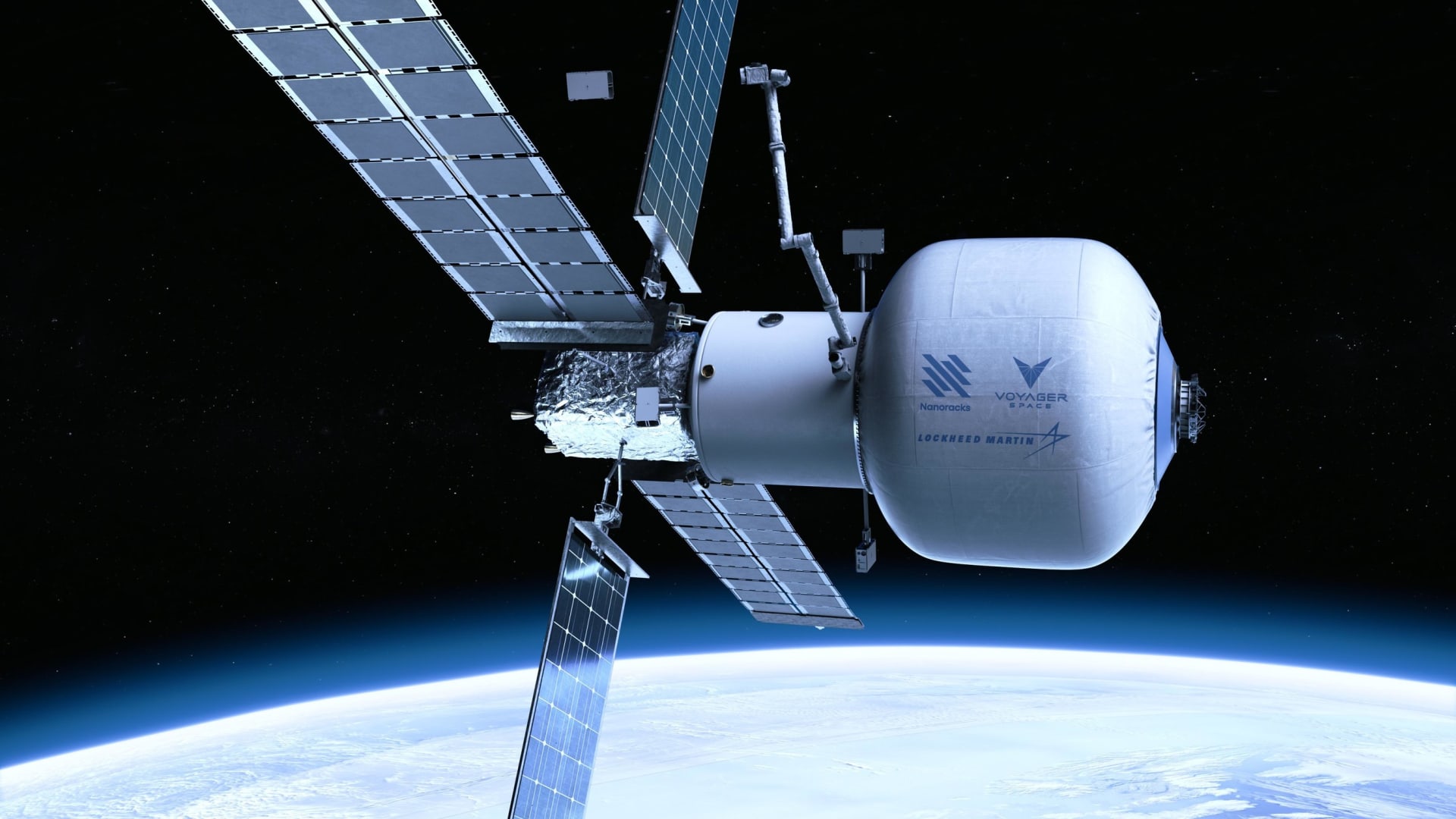Products You May Like
PARIS — Hotel giant Hilton has signed on to design astronaut facilities for the private space station Starlab, currently under development by Voyager Space Holdings and Lockheed Martin, the companies told CNBC on Monday.
In addition to designing hospitality suites and sleeping arrangements, Hilton will also work with Voyager to examine opportunities for marketing of the space station and astronaut experiences onboard.
Voyager Chairman and CEO Dylan Taylor, speaking with CNBC at the 2022 International Astronautical Congress, said that he’s excited by the “unique perspective” that Hilton brings to the project because “they’re not space people.”
“It’s almost like looking at it with a fresh set of eyes and saying: ‘How do we reimagine this experience,'” Taylor said, adding that he sees it as “a bit of an edge.” The partnership marks the first of its kind among the private stations in development, although both the space and hospitality sectors have long envisioned the possibilities of a hotel in orbit.
“For decades, discoveries in space have been positively impacting life on Earth, and now Hilton will have an opportunity to use this unique environment to improve the guest experience wherever people travel,” Hilton CEO Christopher Nassetta said in a statement.
Voyager and its operating company Nanoracks are developing the free-flying Starlab space station in partnership with Lockheed Martin. The companies aim to have the first Starlab operational in low Earth orbit as early as 2027.
The space station is one of four being built by U.S. companies with help from NASA contracts as the agency prepares to retire the International Space Station (ISS) in 2030. Under NASA’s Commercial LEO Destinations program, Nanoracks was awarded the largest individual contract in the program, worth $160 million to aid in creating Starlab.
Taylor said the partnership with Hilton came out of a relationship that began with the “cookies in space” in early 2020, when astronauts on the ISS baked DoubleTree chocolate chip cookies as the first experiment in baking food in space.
Taylor said Voyager sees strong market opportunities for Starlab in science and research services, as well as human spaceflight.
Voyager expects to begin manufacturing the first Starlab module in the third quarter 2023. Taylor said the team is “about a year to bending metal.”
The first Starlab is built to be as flexible as possible — with the design capable of having three modules attached together. The company’s longer-term goal is to expand to “multiple Starlabs that are purpose-built” for different market needs, Taylor said.
The company has built a portfolio of nine space infrastructure and technology businesses so far. Voyager plans to pursue an IPO in the next year or so.
